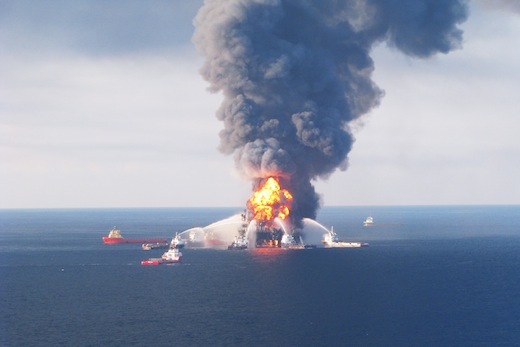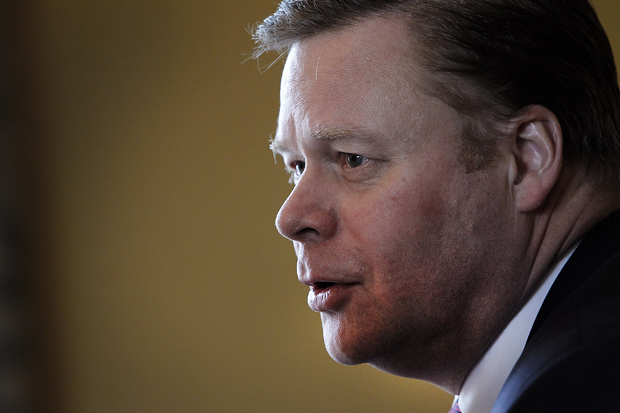Iain Conn, who will succeed Sam Laidlaw as chief executive of Centrica, would have been a dead cert for the top job at his current employer, BP, were it not for the Deepwater Horizon oil rig disaster in the Gulf of Mexico in April 2010. The subsequent PR fiasco terminated the BP career of the then chief executive Tony Hayward — who seemed crushed by the episode, but recovered to make a double fortune at Genel Energy and Glencore. Had Hayward served a full term, Conn (BP’s head of refining and marketing) would almost certainly have followed him. As it was, BP found it more politic to appoint an American, Bob Dudley, to repair relations in Washington while simultaneously arm-wrestling with the Kremlin-connected oligarchs who were BP’s co-investors in Russia.
If that would have been a tough assignment, the one Conn will take on at Centrica is just as challenging: seeking to justify domestic energy price rises, and his own £3.7 million pay package, to grandstanding politicians and angry consumers. The Old Etonian Laidlaw was uneasy in the spotlight, particularly when tabloids dubbed him ‘Sammy Two Pools’ over (apparently incorrect) reports of plans for a second swimming pool on his ‘sprawling Costwold estate’. The final straw may have been another nickname, ‘the Blackout Blackmailer’, after Laidlaw responded to Ofgem’s latest investigation into the ‘Big Six’ energy suppliers with a warning that pricing uncertainty would bring a halt to capital investment — and power cuts ahead.

Is Conn better equipped for the Today programme and select committee grillings? He’s affable and articulate and I suspect he’s pretty thick-skinned; he has the advantage of an Edinburgh accent, being a product (like Alistair Darling and Andrew Marr) of Loretto school. And whereas both Laidlaw and Hayward have a penchant for yachts, Conn declares a populist passion for the saxophone. When I met him at BP last year, he spoke of the need for big companies ‘above all to be trusted’, so I think he knows what he has to achieve at Centrica. He also gave me the clearest exposition I have yet heard on the practicalities of fracking, and the risk of reliance on high-cost imports of liquefied natural gas by tanker from the Gulf. Let’s hope he’s capable of cutting through the cacophony of green sloganising and explaining those issues to the British public.
Catastrophique
I’m in France for my summer sojourn, and will be taking the opportunity to compare the state of the French economy and business scene with our own — as well as hoping to bump into President Hollande on holiday walkabout, so I can give him a piece of my mind. His contribution this week has been to urge Germany to do more to boost growth, because ‘that would be the best thing it could do for France’ — presumably on the basis that there’s nothing useful he can do himself, such as abolishing the 75 per cent income tax rate that has driven so many talented people out of his country, or relaxing the stranglehold of his labour laws.
Pierre Gattaz, who heads the French employers’ association Medef, has spoken recently of a ‘situation économique catastrophique’ in which ‘if France were a business it would be close to liquidation’. One key indicator is the Markit Purchasing Managers’ Index for the manufacturing sector, which fell to 47.6 in July — a reading below 50 indicating contraction and falling confidence; the comparable UK figure was 55.4, still buoyant even though it was the lowest for a year. As for anyone brave enough to start a business despite a Sisyphean burden of regulation, only 5 per cent of a million registered ‘autoentrepreneurs’ report achieving a monthly turnover that’s enough to subsist on.
But there is one point of light: the foie gras industry (which employs 30,000 people, and for which Hollande has actually been known to speak up, in response to a Californian ban) has seen a sales rise of 17 per cent so far this year. Deep in the Dordogne, I’m surrounded by producers of this delicacy who set a hard-working, profit-driven example to their countrymen; in solidarity, I’m tempted to buy a dozen ducks and declare myself an autoentrepreneur.
Northern value
I’m pleased Leeds, Liverpool, Manchester, Newcastle and Sheffield have so swiftly come up with a plan for the ‘northern global powerhouse’ that George Osborne called for in June, even without taking up my offer to chair some blue-sky sessions to get them started. Their ‘One North’ report calls for £15 billion of investment to halve train journey times between northern cities, relieve congestion on the M62 and improve port and airport links. My man in Manchester’s corridor of power emails excitedly to say ‘it all makes complete sense’ and that the Labour leaders of the five cities are ready to work with Osborne to make it happen. But would £15 billion be a reasonable price for revving up the region’s performance? It’s roughly the same as the cost of Crossrail, the east-west link beneath London, or the projected cost of Crossrail 2 from Surrey to Hertfordshire. It’s the equivalent of two-and-a-half new aircraft carriers, or one really massive NHS computer system cock-up. In short, it’s a bargain: let’s get on with it.
Just for today
Among a rich postbag of readers’ versions of the ‘bankers’ oath’, I particularly liked Chris Hammond’s idea of adapting the Alcoholics Anonymous ‘Just for Today’ mantra, which encourages members to take one step at a time towards a better life without trying to address all their problems at once. Combining that approach with a pithy entry from Nicola Nicholls, we get: ‘Just for today, I will not knowingly sell a product or loan to any customer which is likely to be disadvantageous to him, whether or not he is stupid enough to buy it.’ Keep the suggestions coming, to martin@spectator.co.uk.
Got something to add? Join the discussion and comment below.
Get 10 issues for just $10
Subscribe to The Spectator Australia today for the next 10 magazine issues, plus full online access, for just $10.
You might disagree with half of it, but you’ll enjoy reading all of it. Try your first month for free, then just $2 a week for the remainder of your first year.
















Comments
Don't miss out
Join the conversation with other Spectator Australia readers. Subscribe to leave a comment.
SUBSCRIBEAlready a subscriber? Log in